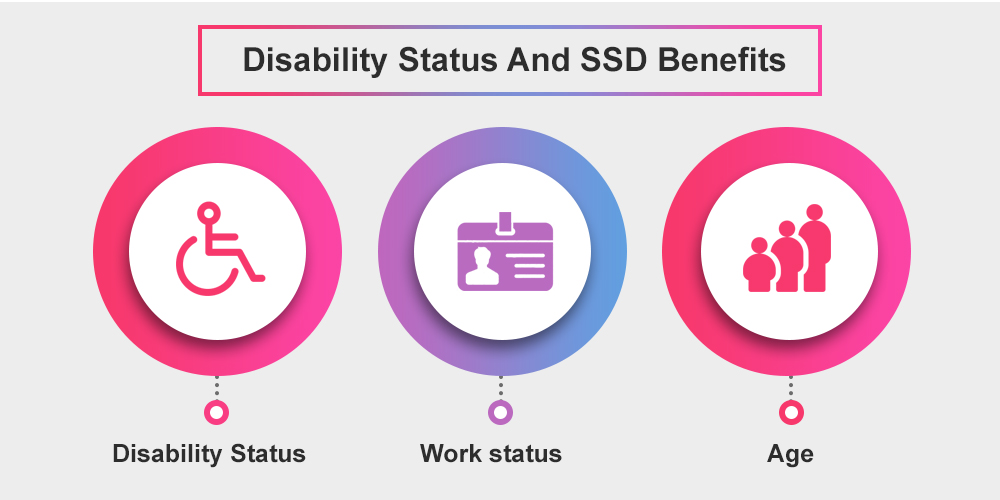
How Long Can You Collect Social Security Disability Benefits?
A sigh of relief may be your initial reaction to receiving a notice that your claim for Social Security Disability Insurance or Supplemental Security Income benefits has been approved. Monthly disability benefits certainly make life easier and relieve financial pressures, but you probably want to know how long can you collect disability benefits.
The answer to your question depends on a variety of factors, including, the program through which you receive the benefits and whether you continue to meet its eligibility guidelines. Here is an explanation of Social Security disability and things that affect how long you receive benefits.
Disability Status And SSD Benefits
Once you qualify for disability benefits through SSDI or SSI there are a few factors that affect your ability to continue receiving disability benefits, including:

Social Security uses a definition in federal regulations to determine whether you are disabled. According to the definition, you are disabled if you are unable to do a substantial gainful activity because of a medically determinable physical or mental health impairment lasting or expected to last for at least 12 months or expected to result in death.
Substantial gainful activity is an activity that is both substantial and gainful. Substantial work activities involve physical or mental effort, such as standing, walking, climbing steps, lifting heavy objects, and remembering.
When you receive payment in exchange for doing an activity, it becomes gainful. However, the ability to engage in a substantial activity may be gainful according to Social Security even if you do not receive payment as long as the activity is one that someone would customarily receive payment for doing. The SSA uses the income that you receive as the method for determining your ability to do a substantial gainful activity.
If you have earnings from work of $1,470 or more a month in 2023, you are capable of substantial gainful activity and are no longer disabled. If you qualify for disability benefits because you are blind, your monthly earnings cannot be $2,460 or more. However, the substantial gainful activity limit of $2,460 does not apply to anyone receiving SSI benefits because they are blind.
Federal regulations require that you promptly report any change in your income or disability status to Social Security, but the SSA also conducts Continuing Disability Reviews to determine whether you remain disabled. Reviews are generally conducted every three years, but if your have a medical condition that medical professionals do not expect to improve, your disability benefits claim review may be extended to once every five to seven years.
During a Continuing Disability Review, Social Security may review your work status and, if you receive SSI benefits, income sources and resources that you have available. This is done to determine whether you continue to meet non-medical eligibility requirements for disability benefits.
Work Status And Collecting Disability Benefits
If you receive benefits through SSDI, you have the ability to attempt to return to work without it affecting your eligibility for benefits. A work incentives program lets you return to work during a trial work period that lasts for nine months, but the nine months need not be consecutive as long as they do not extend beyond 60 months.
During a trial work period, you can earn as much as you can without it affecting your disability benefits. As long as you report the income from work to Social Security, you will continue to receive your full SSDI benefits payment during the trial period. Trial work periods do not apply to people who receive SSI benefits. Income that you earn from work must be reported as it may reduce the amount that you receive from SSI.
Retirement Age And Collecting Disability Benefits
As long as you remain disabled and meet other eligibility requirements for SSI, there is no age limit for how long can you collect disability benefits. However, a different rule applies to benefits paid through the SSDI program.
The SSDI program is funded through payroll taxes that go into the Social Security trust fund, which also funds Social Security retirement benefits. When you reach full retirement age, your SSDI benefits automatically convert to retirement benefits. You do not have to notify Social Security, and you will not see any change in the amount of the payment that you receive each month.
Full retirement age is not the same for everyone, and it is not the same as early retirement. The full retirement age is based on the year you were born. Anyone born in or after 1960 qualifies for full retirement benefits at age 67.
Some people qualify to receive Social Security retirement benefits at age 62, but this is not the same as the full retirement age. If you were born before 1960 or have questions about early retirement and disability benefits, ask a disability advocate to review how it applies to you.
Get Help From A Disability Benefits Lawyer
When you need advice or skilled representation about Social Security disability benefits, a disability lawyer at the Keener Law Firm can help. Contact us today for a free consultation.